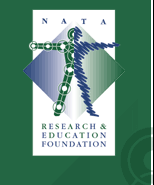|
PRACTICAL
SIGNIFICANCE
Male and
female
collegiate
athletes
displayed
differences
in
post-concussion
symptoms
suggesting
that sex
specific
evaluation
tools
may be
necessary.
Collegiate
athletes’
visual
memory
scores
had the
greatest
decrements
as a
result
of a
concussion
and
warrant
special
attention
when
evaluating
a
concussed
athlete.
STUDY
BACKGROUND
There
are
approximately
300,000
sport-related
concussions
reported
each
year.
Although
severity
of
concussion
has been
reported
to be
higher
among
male
athletes,
female
athletes
have
been
found to
be at a
greater
inherent
risk for
concussions
in
basketball
and
soccer.
However,
very few
studies
have
compared
sex
differences
among
collegiate
athletes
sustaining
a
concussion.
OBJECTIVE
The
purpose
of the
study
was to
determine
if sex
differences
exist in
post-concussion
symptoms
and
neurocognitive
function
in
concussed
collegiate
athletes.
DESIGN
AND
SETTING
A
prospective
cohort
design
was used
to
compare
baseline
and
post-concussion
neuropsychological
test
scores
and
symptoms
using
the
ImPACT
concussion
software.
When an
athlete
sustained
a
concussion
he or
she
completed
the
ImPACT
test on
average,
2 and 8
days
post-injury.
SUBJECTS
Division
I
intercollegiate
athletes
(N =
1093) at
five
Northeastern
Universities
were
administered
the
ImPACT
test
battery
during
the
2002-2003
and
2003-2004 academic
years.
Seventy-nine
athletes
sustained
a
concussion
during
the
study
period.
MEASUREMENTS
The
ImPACT
battery,
the
American
Academy
of
Neurology
definition
and
grading
scale
were
used by
physicians
and
certified
athletic
trainers
to
assess
athletes
who
suffer a
concussion.
RESULTS
Multivariate
analyses
revealed
no
significant
between-groups
differences
on
baseline
test
performance
by sex
on any
of the
ImPACT
composite
scores
or total
symptom
score.
Multivariate
analyses
of
post-concussion
data
revealed
a
significant
main
effect
of time
on
ImPACT
scores,
but no
main
effect
of sex
and no
time-by-sex
interaction.
Post-hoc
analysis
revealed
that
concussed
female
athletes
performed
significantly
worse
than
concussed
male
athletes
on
visual
memory
scores
(P=
0.001),
and
analysis
of
endorsed
post-concussion
symptoms
revealed
that
concussed
male
athletes
were
significantly
more
likely
to
report
post-concussion
symptoms
of
vomiting
(P=0.001)
and
sadness
(P=0.017).
Athletes'
scores
were
examined
individually
using
the
reliable
change
methodology.
At 2
days
post-injury,
58% had
one or
more
reliable
declines
in
performance
or
increases
in
symptom
reporting.
At 8
days,
30% were
still
showing
one or
more
reliable
changes
from
pre-season
levels.
CONCLUSIONS
College
athletes
exhibit
differences
on
visual
memory
composite
scores
and
symptoms
post-concussion
as a
function
of sex.
These
data
support
the
importance
of
evaluating
neuropsychological
status
and
post-concussion
symptoms.
In
addition,
these
data
illustrate
the
importance
of
analyzing
an
individual
athlete’s
recovery
patterns,
as
individual
differences
in
recovery
trajectories
may be
overshadowed
by
global
norm-group
comparisons.
|
Publication
and
Presentation
List:
-
NATA
Annual
Meeting,
Baltimore,
MD,
June
15-19,
2004
-
Covassin
T,
Swanik
C,
Sachs
M,
Kendrick
Z,
Schatz
P,
Zillmer
E,
McKeever
C.
Sex
differences
in
postconcussion
symptoms
and
neuropsychological
recovery
of
collegiate
athletes.
Journal
of
Athletic
Training
39(2):
S19,
2004
-
Covassin
T,
Swanik
C,
Sachs
M,
Kendrick
Z,
Schatz
P,
Zillmer
E,
McKeever
C.
Sex
differences
in
baseline
neuropsychological
function
and
concussion
symptoms
of
collegiate
athletes.
British
Journal
of
Sports
Medicine
40:
923-927,
2006
|
|

Tracey Covassin, PhD, ATC
Principal Investigator
|
|
Tracey Covassin received a B.A. in Psychology from McMaster University, Hamilton, Ontario (1995), a M.S. in Sports Medicine from the University of Nevada, Las Vegas (1999), and a Ph.D. in Exercise and Sport Psychology from Temple University (2003). She joined the Department of Kinesiology at Michigan State University as an assistant professor in the fall of 2005. |
| |
Tracey M. Covassin, PhD, ATC
Michigan State University
Department of Kinesiology
105 IM Sport Circle
East Lansing, MI 48824
Phone: 517-353-2010
Fax: 517-353-2944
Email: covassin@ath.msu.edu |
|
|
The original Grant Information Summary previously published and available at http://www.natafoundation.org/pdfs/Covassin.pdf has since been updated with data collected since then which ended on May 30, 2004. |
Back to
January
17, 2007
eBlast
Newsletter
Send e-mail
to johno@nata.org with questions
or
comments
about this web site. |


